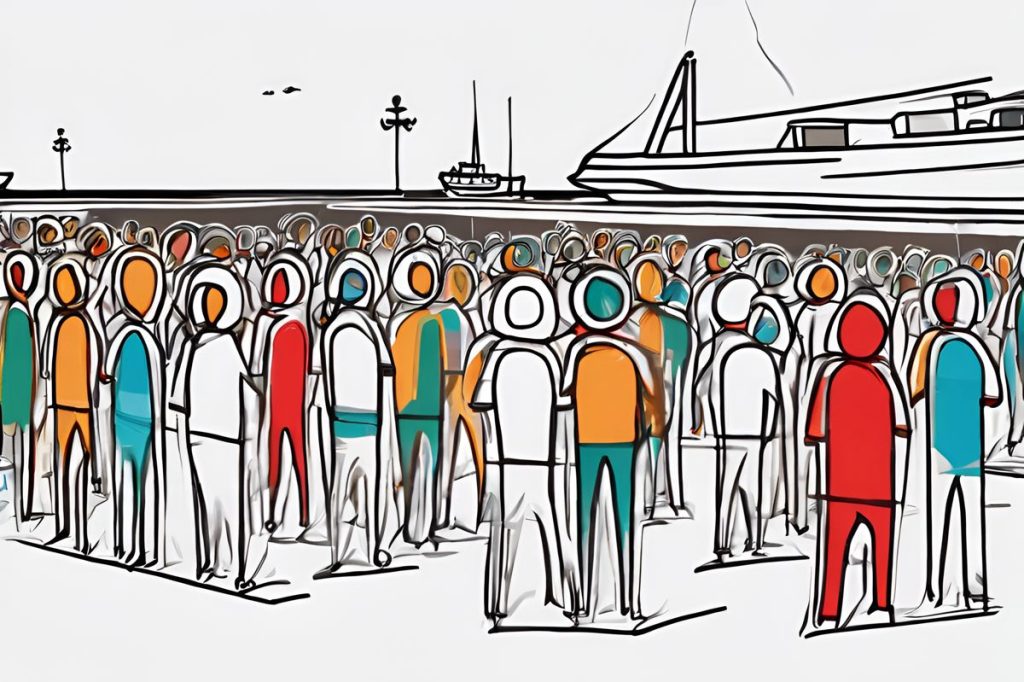Demonstrations erupted at Larnaca Port in Cyprus due to public outrage over the government’s decision to allow Israeli military and commercial use of the port, raising concerns about the nation’s safety and sovereignty. Local activists fear potential entanglement in Israel’s controversial regional actions, highlighting the delicate geopolitical balancing act Cyprus must navigate.
What are the reasons behind the demonstrations at Larnaca Port in Cyprus?
The demonstrations at Larnaca Port were triggered by public disapproval of the Cypriot government’s decision to allow Israeli military and commercial use of the port. Protesters expressed concerns about Cyprus’s safety, sovereignty, and the potential for the island to become involved in regional conflicts or become a target due to this agreement. Local activists fear this could implicate Cyprus in Israel’s controversial regional actions.
Public Unrest Over Security and Sovereignty Concerns
The usually tranquil atmosphere of Larnaca was disrupted by a wave of public discontent as demonstrators gathered at the city’s port. The protest erupted in response to the Cypriot government’s decision to permit Israel the use of Larnaca port for both military and commercial purposes. Participants raised alarm over the implications such an agreement might have on Cyprus’s standing and safety.
Local activists from United for Palestine Cyprus were vocal in their disapproval, condemning the move as a source of shame and risk for the nation. They articulated concerns that through this act, Cyprus inadvertently becomes an accomplice in the contentious actions attributed to Israel in the region, spanning alleged war crimes to the contentious extraction of natural resources.
Strategic Implications and Regional Tensions
With the Mediterranean region being a complex geopolitical stage, the decision to allow Israeli access to Cypriot ports has broader implications. The port’s proximity to the contested regions and the increasing tensions between Israel and various factions, including Hezbollah, adds a layer of potential risk for Cyprus. The island nation, which has historically been known for its strategic maritime location, finds itself in a delicate position, balancing international alliances with the safety and welfare of its citizens.
Protesters argue that such military collaborations might not just attract regional conflict but could also transform the island into a target. The gathering, which began at 2pm on a Sunday, symbolized a significant sentiment among citizens — one of resistance to any form of external influence that may compromise the island’s security or entangle it in conflicts beyond its borders.
The Role of Media and Journalistic Integrity
In the midst of the turmoil, the role of the media as an informant and watchdog becomes ever crucial. Journalists like Nikolaos Prakas, who have been reporting on regional affairs for years, are tasked with the delicate balance of reporting facts while navigating the waters of national interest and political pressure. It is through their reporting that citizens, as well as the international community, can remain informed about such critical developments.
Prakas, with a focus on politics, crime, and social issues, represents the critical eye needed in situations where public opinion and government decisions might not align. The reporting on such events not only chronicles the happenings but also reflects the sentiment and voices of the populace – a cornerstone of democratic societies.
Geopolitical Context and Future Prospects
As the outcry in Larnaca demonstrates, global politics have local impacts. The strategic decisions of governments can provoke strong responses from their citizens, particularly when they involve international alliances and regional security dynamics. Cyprus’s geopolitical significance has not waned; rather, it has become an increasingly important player in the power dynamics of the Eastern Mediterranean.
Moving forward, the Cypriot government will need to navigate these complex relationships with careful consideration of both domestic and international repercussions. The protests at Larnaca port are not just about a single event or decision, but also about the broader narrative of a nation defining its role in a changing world where sovereignty, security, and solidarity are of paramount importance.
What are the reasons behind the demonstrations at Larnaca Port in Cyprus?
The demonstrations at Larnaca Port were triggered by public disapproval of the Cypriot government’s decision to allow Israeli military and commercial use of the port. Protesters expressed concerns about Cyprus’s safety, sovereignty, and the potential for the island to become involved in regional conflicts or become a target due to this agreement. Local activists fear this could implicate Cyprus in Israel’s controversial regional actions.
Why is there public unrest over security and sovereignty concerns at Larnaca Port?
The public unrest stems from the decision to permit Israeli access to Larnaca port for military and commercial purposes, raising concerns about Cyprus’s safety and sovereignty. Activists worry that this agreement could endanger the nation and involve it in controversial regional actions associated with Israel, potentially making Cyprus a target in conflicts beyond its borders.
What are the strategic implications and regional tensions surrounding the use of Larnaca Port by Israel?
The decision to allow Israeli access to Cypriot ports has broader implications given the complex geopolitical dynamics of the Mediterranean region. The port’s proximity to contested areas and escalating tensions between Israel and various factions, such as Hezbollah, heighten the risk for Cyprus. Protesters fear that military collaborations could attract conflict and make the island vulnerable to becoming a target.
How does media and journalistic integrity play a role in situations like the demonstrations at Larnaca Port?
Journalists like Nikolaos Prakas play a crucial role in informing the public about events like the protests at Larnaca Port. They must balance reporting facts with navigating political pressures and national interests. Through their reporting, citizens and the international community can stay informed about critical developments and understand the sentiments and voices of the populace.

